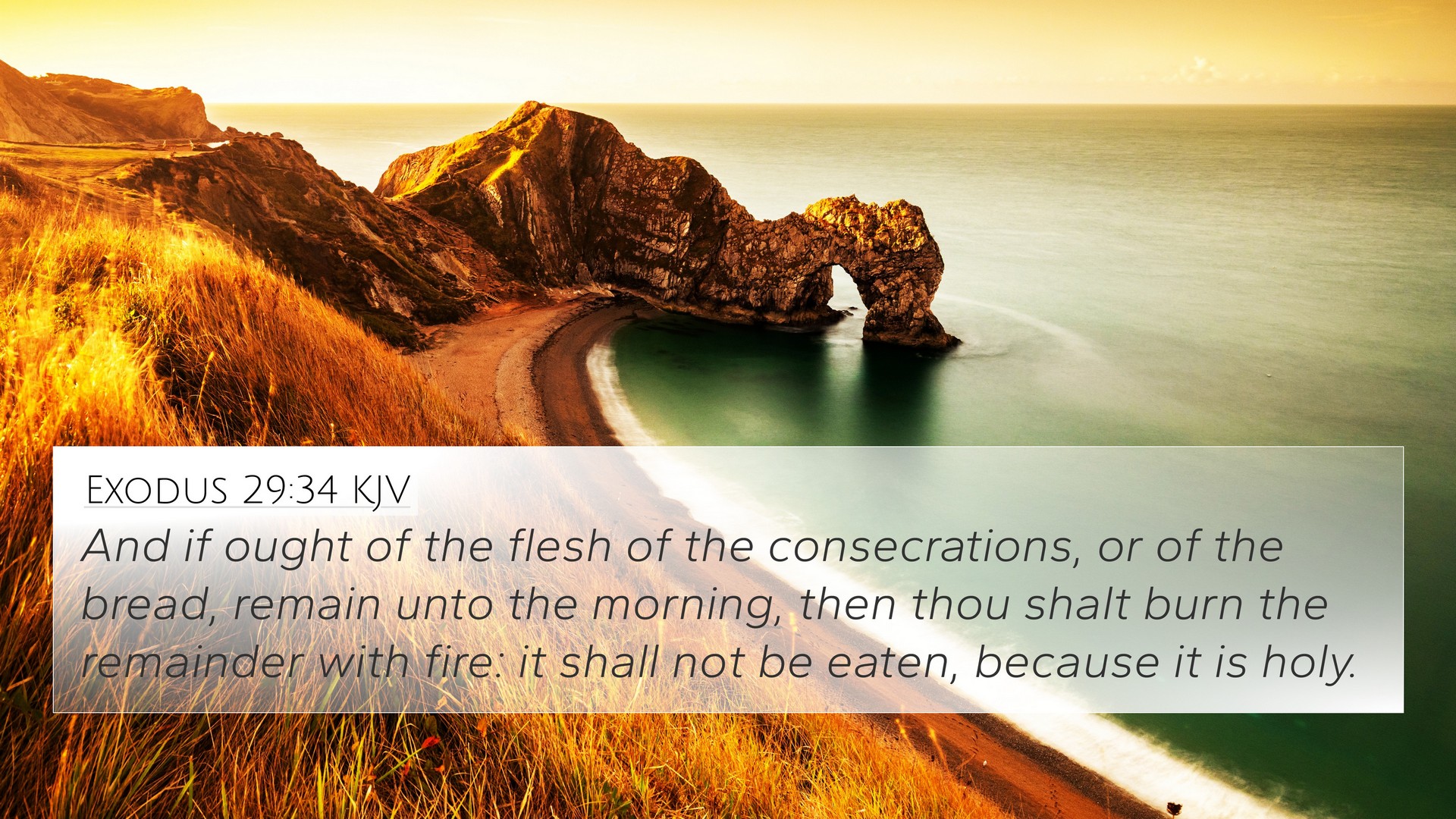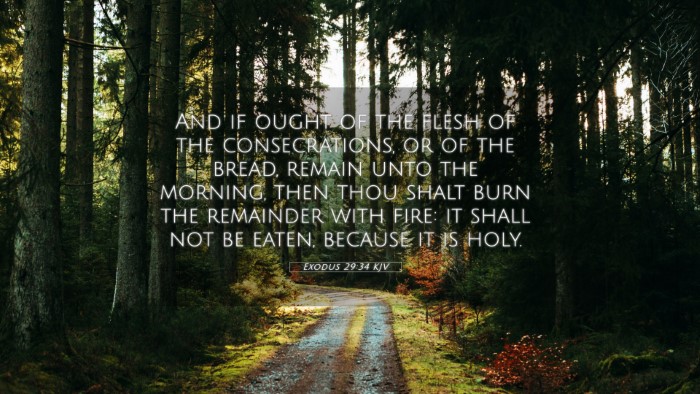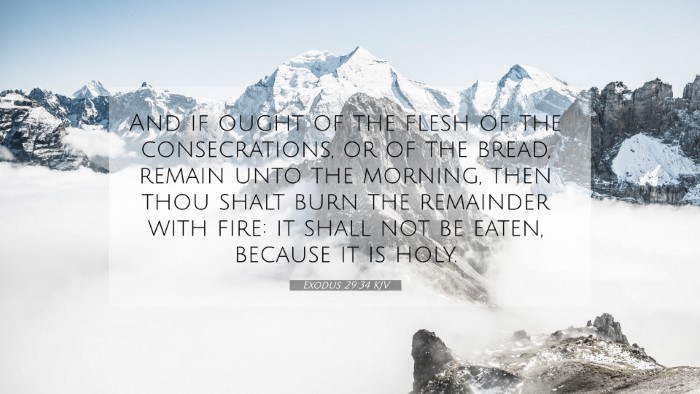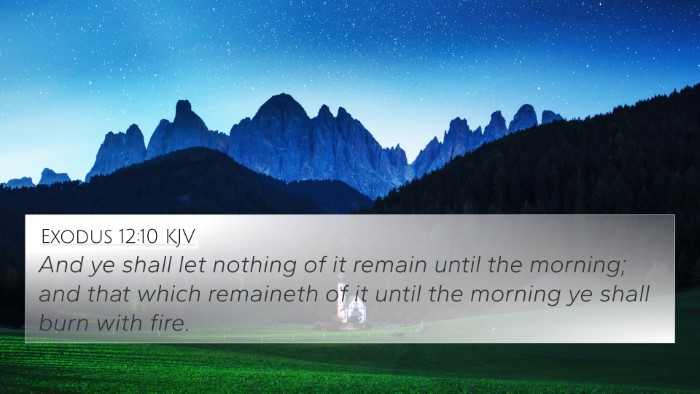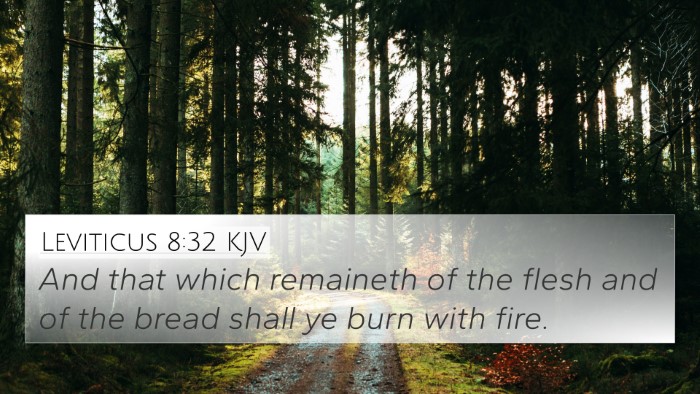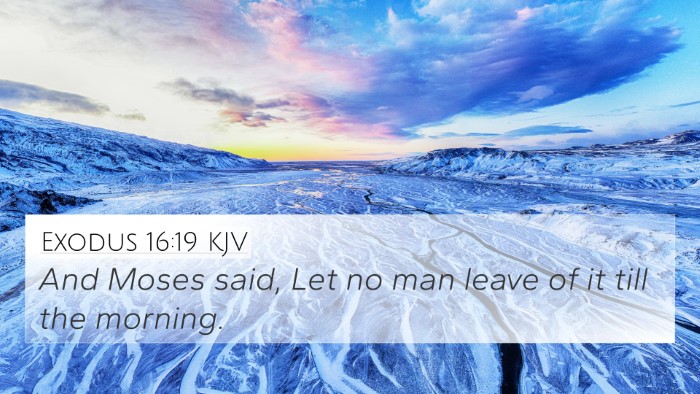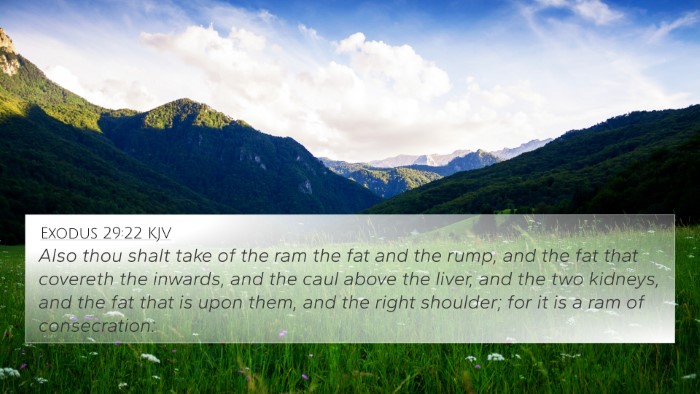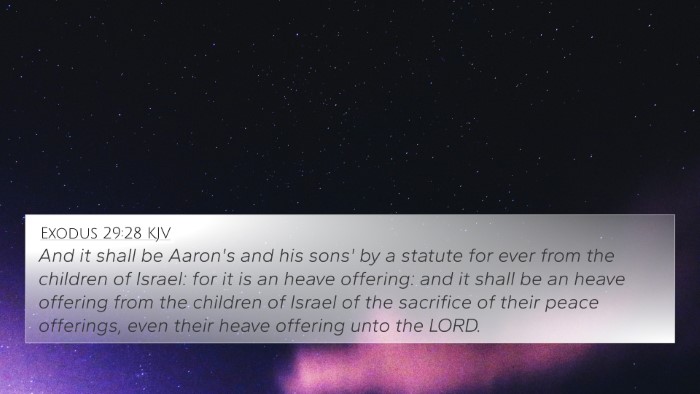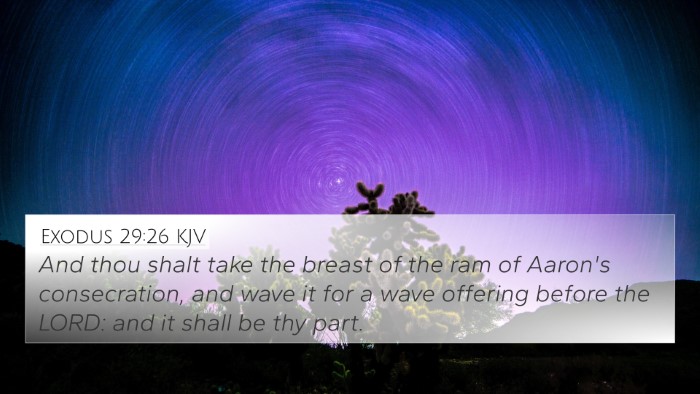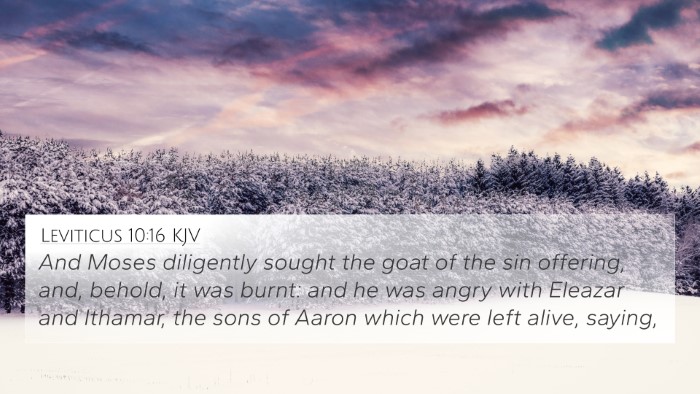Understanding Exodus 29:34
Exodus 29:34 states, "And if any of the flesh of the consecrations, or of the bread, remain unto the morning, then thou shalt burn the remainder with fire: it shall not be eaten, because it is holy."
Verse Meaning and Interpretation
This verse is deeply rooted in the context of the consecration of Aaron and his sons as priests, and it touches on themes of holiness, reverence, and the proper handling of sacred things. The instruction here signifies that anything set apart for God is to be treated with utmost respect and not to be taken lightly.
Commentary Insights
-
Matthew Henry's Commentary:
Henry emphasizes the importance of obedience to God's regulations concerning sacrifices and offerings. He points out that the remnants of these holy offerings must not be treated casually; they must be disposed of properly as a sign of their sanctity.
-
Albert Barnes' Commentary:
Barnes elaborates on the idea of holiness in the passage. He notes that everything dedicated to the Lord must not be consumed or treated as common food but should be acknowledged as sacred. This highlights the seriousness with which God's instructions must be followed.
-
Adam Clarke's Commentary:
Clarke discusses the implications of this regulation on the priesthood. He asserts that the priests were not only responsible for performing their duties but also for ensuring that what was holy remained untouched by ordinary use after the consecration procedures.
Thematic Connections
This verse sets a precedent for understanding the theme of holiness in the scriptures. It emphasizes that what is made sacred must remain untouched by general use, thereby linking to various other scriptures that underscore a respect for the sacred.
Bible Cross-References
- Leviticus 6:17: Discusses the prohibition of consuming offerings that are holy.
- Leviticus 10:12-14: Instructions regarding the eating of offerings for priests, reinforcing the theme of holiness.
- Deuteronomy 12:17-18: Commands regarding the consumption of holy offerings only under certain conditions, aligning with the principles found in Exodus.
- 1 Corinthians 11:27-29: The New Testament echo of treating holy elements with respect during communion.
- Romans 12:1: A call to present our bodies as living sacrifices, holy and acceptable to God, tying into the theme of consecration.
- Hebrews 13:10: Alludes to the altar and how those who serve the tabernacle have no right to eat from it, maintaining the choice division of the holy.
- Psalm 30:4: Instructs to sing praises to the Lord, recalling the holiness and reverence due to His name.
Importance of Cross-Referencing
Cross-referencing biblical texts such as those mentioned above helps in obtaining a clearer understanding of the thematic elements present in Exodus 29:34. Such comparative Bible verse analysis is essential for deepening spiritual knowledge and recognizing the interconnectedness of scripture.
Tools for Bible Cross-Referencing
Utilizing a Bible concordance or a Bible cross-reference guide can greatly enhance one's study of the scriptures. These tools allow readers to:
- Quickly find connections between different parts of the Bible.
- Identify themes that play out across both the Old and New Testaments.
- Engage in a more meaningful Bible study experience by understanding the relational dynamics between verses.
Conclusion
Exodus 29:34 serves as a vital reminder of the seriousness with which we need to regard what is holy. This verse is intricately connected with other scriptures, providing a fuller understanding of God's expectations for holiness and reverence in the practices of worship. By employing cross-referencing biblical texts, we deepen our insights and enhance our spiritual lives.
